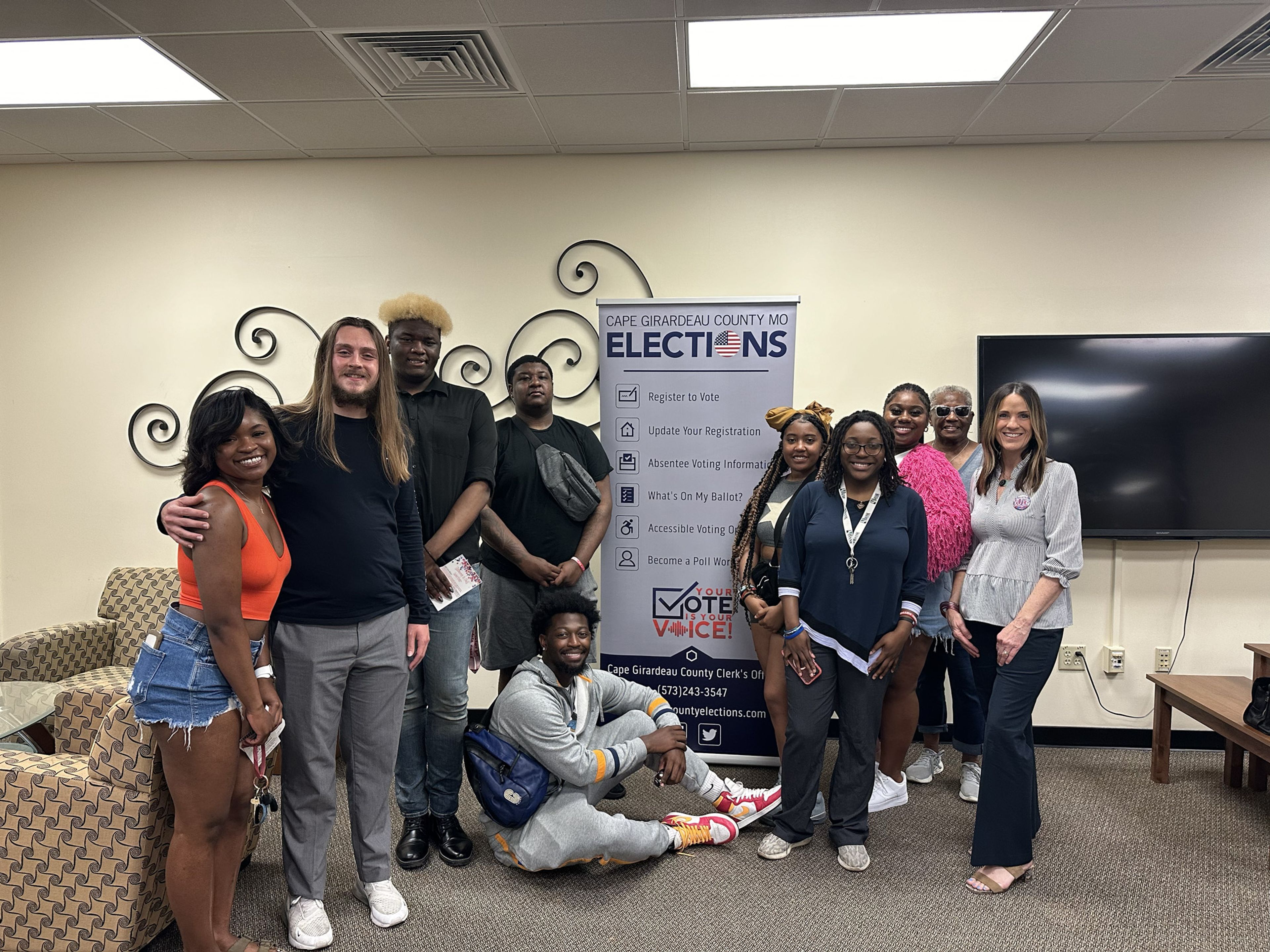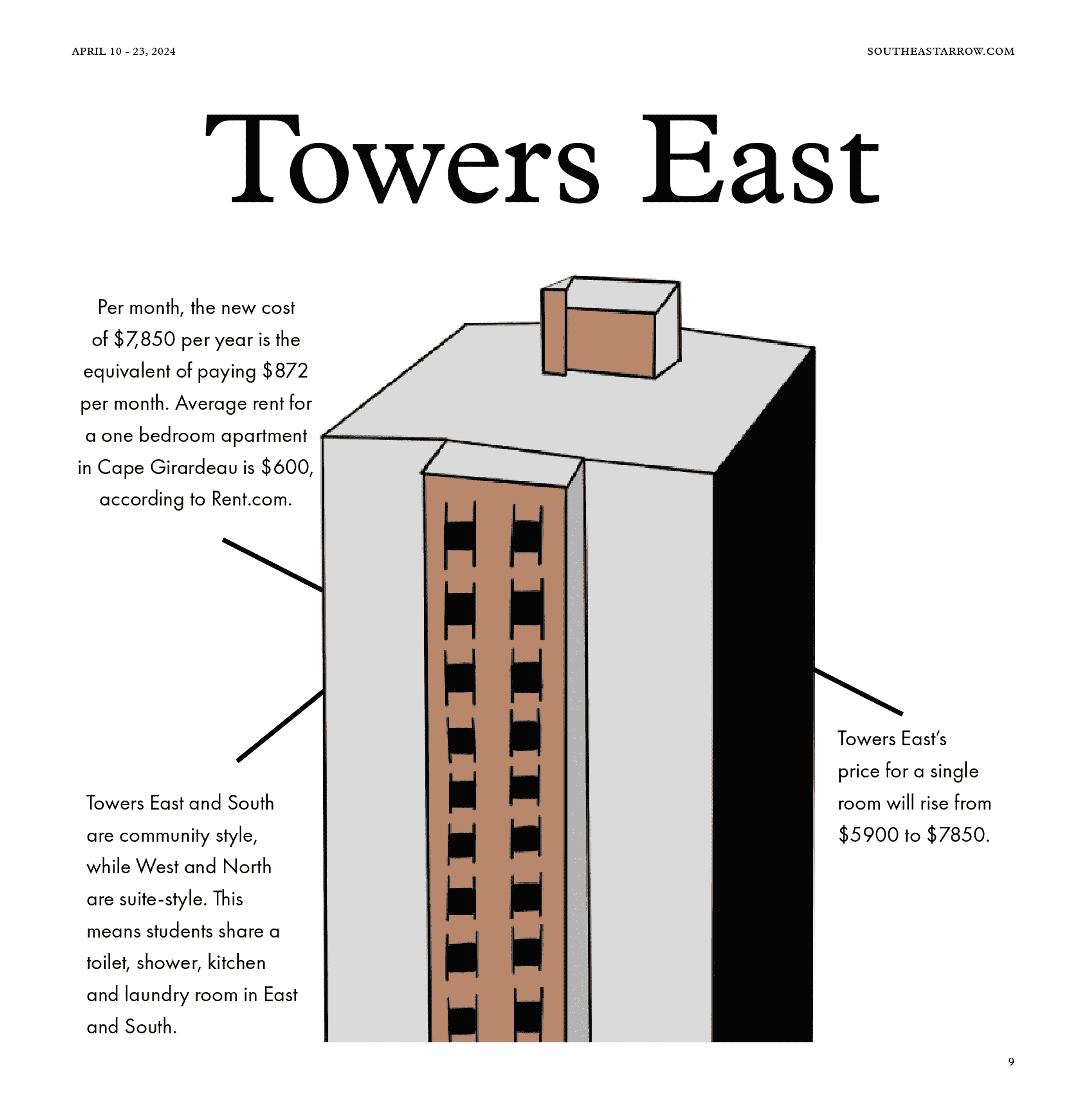After seeing the growth of the forensic science community, Dr. Jim McGill, a professor at Southeast Missouri State University, decided that there needed to be a club for students interested in the forensic science field.
"That sort of was my primary initial goal was to have a place where those students who want to pursue a career in forensics can get some experience, some knowledge and some exposure that they don't get through their normal classes," McGill said.
McGill began working with several students to create the Forensic Science Club. This club allows students interested in forensic science to come together and discuss different aspects of forensic science and also share science with the community. The club began in fall 2011 and became an official student organization this semester. There are approximately 15 students currently involved.
Sariah Cantrell, former president and co-founder of the organization, said she enjoys showing the community what forensic science is about.
"A lot of people think forensic science is chemistry or fingerprinted or stuff of that nature, like what they see in CSI, but it's actually a lot more encompassing," Cantrell said. "Lawyers are part of forensic science, police officers and then of course the scientist involved."
Max Westein, co-founder and member of the club, said he joined the club because he is a graduate student majoring in forensic science. He believes that the Forensic Science Club is "right up his alley."
Wetstein and Cantrell believe that the club is a great networking opportunity for students.
"Mostly what I want members to get out of it is knowing professional people within the forensic science field," Cantrell said. "Some might find it nice to know people in your field, and this is one great way to know people wherever they go."
The Forensic Science Club has hosted guest speakers, created demonstrations for children, been a part of Halloween Science Night at Southeast and worked with children at a summer day camp. The club will also host a trivia night on Dec. 11.
Westein said he has enjoyed doing the demonstrations for children.
"[The demonstration] was really cool because [the children] are homeschooled, so they may not get the whole exposure of being in a lab," Westein said. "So it was kind of neat to see them in that situation."
The club also received funding this year to attend a forensic science conference in Seattle in February. Cantrell and Wetstein attended a forensic science conference last year and felt that the experience was beneficial.
"I learned so much more about the lawyer and judge side of everything just at this one conference, it seemed like, than I ever knew about," Wetstein said. "Just the bickering that goes back and forth between a lawyer and a judge, and as a forensic scientist you're an expert witness. You have to try and explain science to the lawyers and the juries and the judge so it will make sense. But you still have to be able to report the facts as you see them, so that was really cool just to see how all of that works."
Cantrell said during her time as president she wanted to help the club grow. Once a new president is elected, she hopes that they will ensure that the club continues to prosper and that he or she will maintain the number of activities that the club has done in the past.
"I think right now we're a tiny seed and we need to grow into a tree, so hopefully that will be what's happening in the next year, that slowly we start to become a bigger organization and a better organization," Cantrell said.




